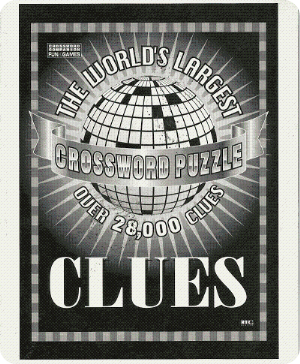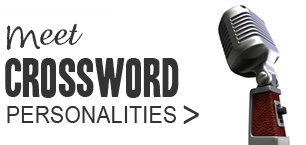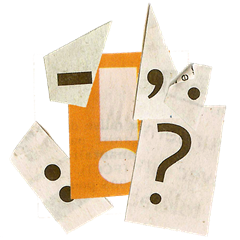
The standard advice for punctuation in cryptic clues is "Ignore it". That is good advice in most cases, like these -
FT13474 (Mudd): As something painful hurt, I came to be treated (9) RHEUMATIC
An anagram of (hurt I came). The comma has no role in the cryptic reading.
Guardian 24802 (Araucaria): No time to ask "Why's head visible?" (2,4) IN VIEW
INVITE (ask) – T (time), W (head of 'why'). The quotes have no role in the cryptic reading.
Times 24300: Horse-and-buggy kept inside — that's sick (7) MACABRE
MARE (horse) around CAB (buggy). The hyphens have no role in the cryptic reading.
The same clues are easier to solve without the distractions of surface punctuation:
As something painful hurt I came to be treated (9)
No time to ask why's head visible (2,4)
Horse and buggy kept inside that's sick (7)
Most of the time, as above, the role of punctuation is only to create a meaningful, misleading surface for the clue. For solving, the punctuation can safely be ignored.
There are some exceptions to that rule. Let's have a closer look at them.
The Apostrophe
The apostrophe requires careful consideration. If the apostrophe has been used to drop letters in the clue, this indicates that corresponding letters are to be dropped in the answer.
Guardian 24974 (Chifonie): Confirm or 'esitate (4) AVER
HAVER (hesitate), with the H dropped as indicated by the apostrophe.
The apostrophe can be used to disguise a container indicator:
Times Jumbo 884: Fire’s hot inside cabin (5) SHACK
SACK (fire) has H (hot) inside. With the aid of the punctuation, 'is' converts to 'has' in the cryptic reading.
For more uses of the apostrophe, read The Significance of ’s in Cryptic Clues.
The Special Role Of ? and !
? and ! generally indicate that something unusual is going on in the clue.
? can mean that:
- the clue is a cryptic definition if the '?' is placed at the end of the clue
FT 13475 (Bradman): Two in chemical water? (9) SUBSCRIPT
A cd; '2' is a subscript in the chemical symbol for water, H2O. - the part of the clue preceding the '?' requires some lateral thinking
Guardian 25103 (Paul): Poet writing about primo donno? (4) OVID
'prima donna' is DIVA, so 'primo donno' is DIVO. Turn it about and you get OVID, the Roman poet. The question mark nudges the solver to think of 'primo donno' from an unconventional perspective. - the part of the clue preceding the '?' is a definition by example
Times 24382: Possessive type's first son? (5) THEIR
T[ype] HEIR (son). The question mark is a hint to look for an example - not a synonym – of 'son'. - the setter is taking a small liberty with the accepted rules of fairness and wants you to let it pass
Guardian 24925 (Orlando): Bound to believe in pronouncement? (7) TRUSSED
TRUSSED sounds like TRUST (believe). We might question the correctness of 'in pronouncement' as homophone indicator (it isn't the same as 'in pronunciation') but we accept it because of the '?'.
! usually signals an &Lit clue or an innovative definition.
FT13306 (Cinephile): One entering theatre? Not these days! (5,3) STONE AGE
ONE in STAGE (theatre)
"Not these days" is not a dictionary definition of STONE AGE, therefore the exclamation mark.
But don't rely much on finding special meaning with these punctuation marks either.
Sometimes '?' and '!' too, like other punctuation marks, only help the surface and imply nothing unusual. Sometimes a trailing exclamation mark is just a case of the setter projecting the clue as cleverer than it is! (er, cancel that last exclamation mark)
In the next few clues, '?' and '!' can be ignored.
Times 24317: Might salesman, holding now, finally ring back? (5) POWER
REP (salesman) around [no]W O (ring), all reversed. '?' has no role in the cryptic reading.
Times Sunday 4351: Shell about to strike — good shot! (8) CARAPACE
CA (about) RAP (strike) ACE (good shot). '!' has no role in the cryptic reading.
FT 13475 (Bradman): Drunken spree? One needs skill, intervening (9) BARTENDER
ART (skill) in BENDER (drunken spree) &Lit. '?' has no role in the cryptic reading. Also note that though this is an &Lit clue, there is no '!' at the end.
Guardian 25070 (Enigmatist): "Drifting life forms look to zap!" (News, in shock) (11) ZOOPLANKTON
(LOOK TO ZAP + N + N)*. None of the punctuation marks – quotes or '!' or the brackets – have any role in the cryptic reading.
When punctuation makes all the difference
Nothing is true always.
Hyphens and dashes are generally just fillers, but notice the use of '-' in the next clue:
FT 13385 (Orense): Shanghai duck-eating lizard (7) DRAGOON
DRAGON (lizard) around O (duck)
The hyphen must be taken into the parsing here: if we read "duck-eating lizard" as "duck eating lizard", we would have O around DRAGON.
The ellipsis is another example that in most cases has no impact on the cryptic reading, but sometimes it indicates a cryptic relation between two clues. Read Ellipsis-linked clues for more.
In the next three clues, punctuation marks are of critical importance. Try solving them! (Answers tomorrow)
Guardian 25073 (Paul): Dude — the ride ends here (3,8) B__ T_______
Times 24281: Direct, at first not direct (7) C_____D
Guardian 24167 (Paul): Negotiate track up mountain, perhaps (11,4) P__________ M___
In Closing
We've seen in this article wide-ranging use of punctuation in clues: some in which punctuation leapt out to catch the eye but had no role in the wordplay, others in which punctuation appeared irrelevant but was far from being so.
The rule of thumb is to ignore punctuation other than '?' and '!', but there are clever setters out there to subvert such rules. '?' and '!' can be as misleading as the rest of the punctuation, and the rest can be as meaningful as '?' and '!' are supposed to be.
Don't let punctuation distract you, but don't lose sight of it entirely.
Solve These
A few punctuated clues for you to solve and enjoy.
Guardian 25098 (Puck): Turn from pet? A tortoise doing somersault! (6) R_____
FT 13403 (Loroso): Cold rain, cloud, wind (9) U_______L
Guardian 24839 (Boatman): Dead-end career next? (5) L___R
[This post was written on a suggestion by David Hampton. Thanks David.]
Related Posts:
If you wish to keep track of further articles on Crossword Unclued, you can subscribe to it in a reader via RSS Feed. You can also subscribe by email and have articles delivered to your inbox, or follow me on twitter to get notified of new links.
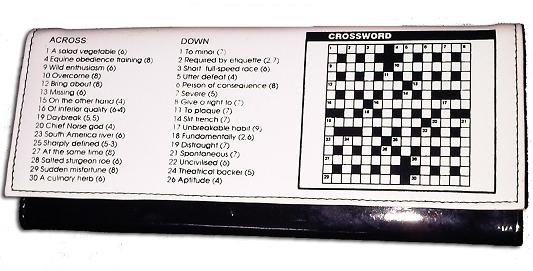


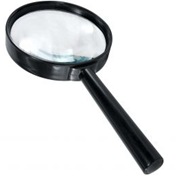 The fine folk who investigate crimes have many standard abbreviations to define their profession, much to the delight of the crossword setter. If the word "detective" or its like appears in a clue, the usual suspects in the answer are:
The fine folk who investigate crimes have many standard abbreviations to define their profession, much to the delight of the crossword setter. If the word "detective" or its like appears in a clue, the usual suspects in the answer are: If you are a
If you are a 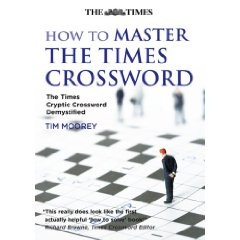
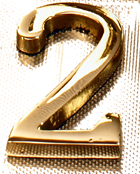 Today, Crossword Unclued celebrates in second birthday - I took the plunge into blogging with
Today, Crossword Unclued celebrates in second birthday - I took the plunge into blogging with 
